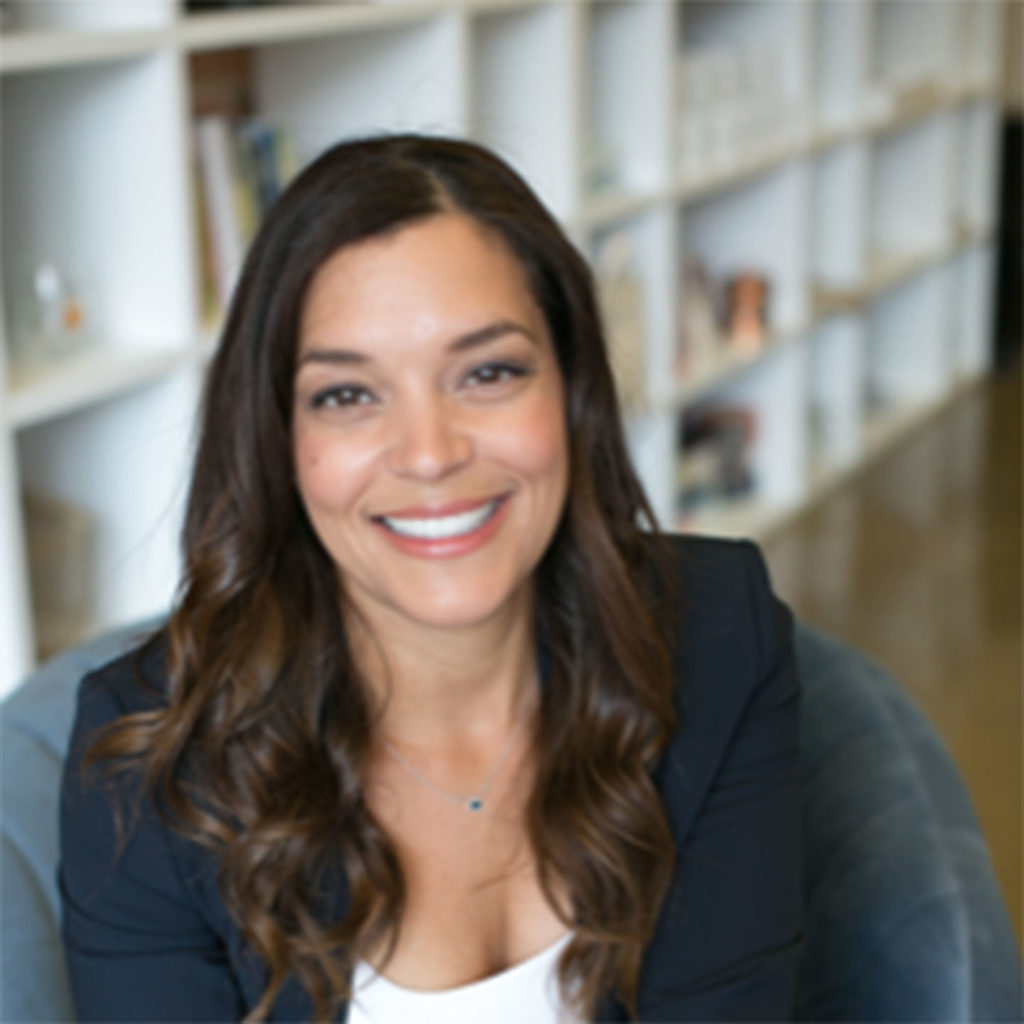The great equalizer
Tuesday, January 26, 2021

When Alison Liddle ’98 BS PT was a kid, if she didn’t have after-school activities, she volunteered at the pediatric nursing home where her mother worked.
Volunteering was integral to their family life and she loved spending time with the children who lived at the facility.
“I thought, ‘I could do this for the rest of my life,’” says Liddle.
And she has.
Liddle’s mission is to bring access to health care to underserved populations.
She is founder and CEO of M Street Pediatric Therapy, which brings early intervention services to the homes of children with developmental delays and disabilities in the greater Chicago area.
Her staff includes 34 therapists who provide physical therapy, occupational therapy, speech therapy, feeding and lactation support, nutrition counseling and behavioral support. Two staff members handle the business end.
Liddle loves her field, and her practice.
“Once you come here, you won’t want to work anywhere else,” she promises. “We need more therapists willing to work in this space. These are families who care and love their children and want what’s best for them. To work in these beautiful communities is extremely inspiring.”
Liddle and her twin, Alisa, who are biracial, were adopted from foster care as toddlers and grew up in mostly-white Bloomingdale.
When it came time for college, both enrolled at UIC; Alisa studied business and Alison chose physical therapy.
I found a home at UIC. I found a place that appreciated diversity and welcomed it.
The physical therapy faculty included two of the best: Jules Rothstein and Suzann Campbell.
“He was tough, and he was honest, and he was amazing,” Liddle says of Rothstein, who died in 2005. “And Sue Campbell literally wrote the book on pediatric physical therapy.”
The big picture
After graduation, Liddle began her career at Cook County Hospital, where she worked in the burn unit, neonatal intensive care and the neuro ICU.
“I learned a lot about the inequity of health care,” she says.
“We think people have access to care, but that’s not always true. Sure, you can get physical therapy at County, but if you can only get an appointment every six months, that’s not access to care.”

Frustrated with the system, Liddle enrolled at the University of Chicago for a master’s degree in health policy and administration.
“UIC prepared me to be a physical therapist, but I didn’t have the bigger picture,” she says. “I was interested in learning more about how systems work together.”
While she was in grad school, Liddle continued her PT practice, taking referrals to provide in-home early invention for high-risk infants on the South and Southwest sides.
Visiting clients at home was an eye-opening experience.
“I’ll be honest. Working in the clinic, you make assumptions about why somebody doesn’t do what’s in their best interest. ‘Why aren’t you doing the exercises we gave you?’
“Then you go into their home and realize they live in a basement, in one room with concrete floors, and it is freezing. Their environment is going to dictate how well they will be able to carry out the recommendations I’m making.”
Pivoting practice
As Liddle completed her master’s degree, “it became very clear to me that I would have to choose: do I want to continue to be a clinician, or do I want to transition completely to this other world of public policy?”
She realized she loved the challenges and opportunities of providing in-home early intervention care to children and their families. She also saw the isolation and lack of support for clinicians who provide in-home care.
So she combined what she learned from her two degrees and started her own agency.
Liddle is still a clinician—”I was not willing to give that up,” she says firmly. But much of her time at M Street is spent “supporting the team”—keeping up with new evidence-based practices, maintaining relationships with community organizations and university programs, “leading with transparency.”

When the COVID-19 pandemic made in-home care impossible, the transition to telehealth wasn’t difficult; staff members were already using it to treat post-NICU patients on the Southeast Side. Another staff member, OT Jessica Toth, was working on a telehealth study with Lauren Little ’08 MS OT, OT assistant professor at Rush University.
The challenge was waiting for various state agencies to modify policies to permit Medicaid reimbursement for telehealth, a process that took up to six weeks. Finding resources to get the technology to families was another issue.
“How do you do telehealth from your phone—because it was usually a phone—and home-school your kids, while at the same time you’re an essential worker, and many times you’re without community support?” Liddle says. “Again, this speaks to health equity.”
Changing the game
Liddle and a colleague are seeking funds for a pilot project to shorten the time between a baby’s discharge from the hospital NICU and when the family receives early intervention home services. Families with private insurance can start getting visits as early as one week after
coming home. Families on Medicaid wait up to a year.
The project could include Lurie Children’s Hospital and Shirley Ryan AbilityLab.
“We work hard to develop community partnerships to improve scholarship and community of practice. This is about building relationships that will improve collaboration and have a positive impact on patient outcomes,” Liddle says.
The health care system needs more therapists doing early intervention in underserved neighborhoods—especially practitioners of color.
“When you look at the amount of diversity within physical therapy, it’s embarrassing.”
That’s one reason training and mentoring students from UIC, Northwestern, Midwestern and Rush universities is important to Liddle
“We want to support students the same way I was supported,” she says.
Liddle praises Campbell, Michelle Bulanda (now director of undergraduate students in rehabilitation sciences) and Demetra John, recently retired dean for academic and student affairs, for connecting her with outstanding UIC grads.
Six AHS alumna currently work for M Street: Laura Capp ’12 DPT, Sara Johns ’08 DPT, Colleen Newton ’12 DPT, Christina Quan ’19 DPT, Meg Mathews ’17 MS OT and Ariana Rodriguez ’18 MS OT. Johns and Newton also did student internships at M Street.
“I love working in under-resourced communities and finding opportunities to support families,” Liddle says.
I wouldn’t be in the place that I am, had I not gone to UIC. My educational experience at UIC set the professional foundation for my life, and I’m forever grateful.